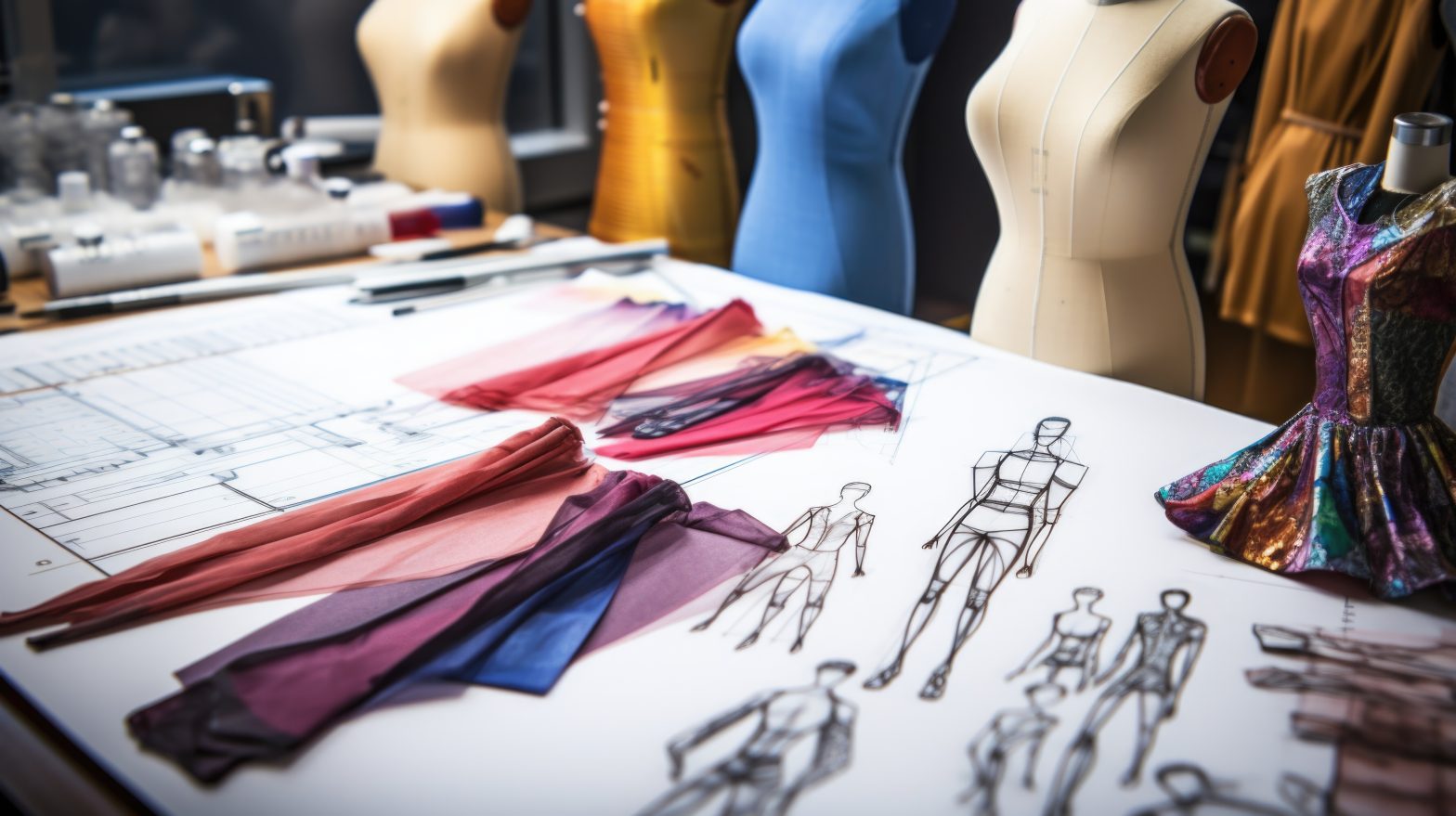Fashion design courses offer comprehensive training in the art of designing clothing and accessories, blending creativity with technical skills. These courses prepare aspiring designers to enter the highly competitive fashion industry, providing them with the foundational knowledge, hands-on experience, and industry insights needed to succeed. From conceptualizing ideas to transforming them into finished garments, fashion design courses cover a wide range of topics, tools, and techniques.
Key Components of Fashion Design Courses
-
Fundamentals of Fashion Design: Most fashion design courses begin with the basics, teaching students the principles of design, such as color theory, form, proportion, and balance. This foundational knowledge helps students understand how to create aesthetically pleasing designs that are also functional and marketable. Courses also explore the history of fashion, giving students a broader context for their work and inspiration from different eras and cultural influences.
-
Sketching and Illustration: A key part of fashion design is the ability to communicate ideas visually. Courses focus on fashion sketching and illustration, teaching students how to draw fashion figures, clothing designs, and accessories. These illustrations are used to convey ideas to clients, colleagues, or manufacturers. In addition, computer-aided design (CAD) software is often introduced to allow for digital rendering of designs, which has become a standard in the industry.
-
Pattern Making and Draping: Another crucial aspect of fashion design is understanding how garments are constructed. Courses in pattern making teach students how to create templates for cutting fabrics that will be assembled into clothing. Draping involves placing fabric directly on a dress form to create the design, which helps students see how fabrics behave in real life and make adjustments accordingly. These technical skills are essential for transforming two-dimensional sketches into wearable garments.
-
Textile Science and Fabric Study: Fabric choice plays a major role in the success of a design. Fashion design courses typically include training in textile science, where students learn about different types of fabrics, their properties, and how they react to various construction techniques. Understanding textiles helps designers select the best fabric for a specific design, whether it's a soft, flowing dress or a structured jacket.
-
Sewing Techniques: Practical sewing skills are essential for any aspiring fashion designer. Courses often include hands-on training in various sewing techniques, from basic hand-stitching to using industrial sewing machines. This helps students understand the process of garment creation and make more informed design decisions.
-
Fashion Trends and Forecasting: Staying ahead of fashion trends is crucial for success in the industry. Courses often explore the art and science of fashion trend forecasting, teaching students how to predict consumer preferences, seasonal trends, and market demands. This insight allows designers to create relevant and commercially viable collections.
-
Fashion Business and Marketing: Many fashion design courses also offer modules on the business side of the industry, including marketing, merchandising, and branding. These courses help students understand how to market their designs, build a brand, and navigate the competitive fashion marketplace. Knowledge of the business side is crucial for those who wish to launch their own fashion labels or work in fashion management roles.
Specialized Courses and Career Paths
Depending on the institution and the program, students may have the option to specialize in certain areas of fashion design. These might include:
- Fashion Styling: Focuses on curating looks and styling for photoshoots, advertisements, and fashion shows.
- Accessory Design: Specializes in designing items such as shoes, handbags, jewelry, and belts.
- Sustainable Fashion: Teaches eco-friendly design practices, focusing on ethical production and the use of sustainable materials.
- Fashion Technology: Blends design with advanced technology, including 3D printing and wearable tech.
Upon completion, students can pursue various career paths such as becoming a fashion designer, textile designer, fashion merchandiser, or stylist. Others may choose to work in fashion production, marketing, or even launch their own brands.
Conclusion
Fashion design courses are essential for those aspiring to enter the world of fashion, offering a mix of creative and technical education. By learning design principles, pattern making, sewing, and marketing, students are equipped with the tools to bring their fashion visions to life and succeed in the global fashion industry. Whether focusing on haute couture or ready-to-wear, these courses provide the foundation for a diverse and exciting career in fashion.
